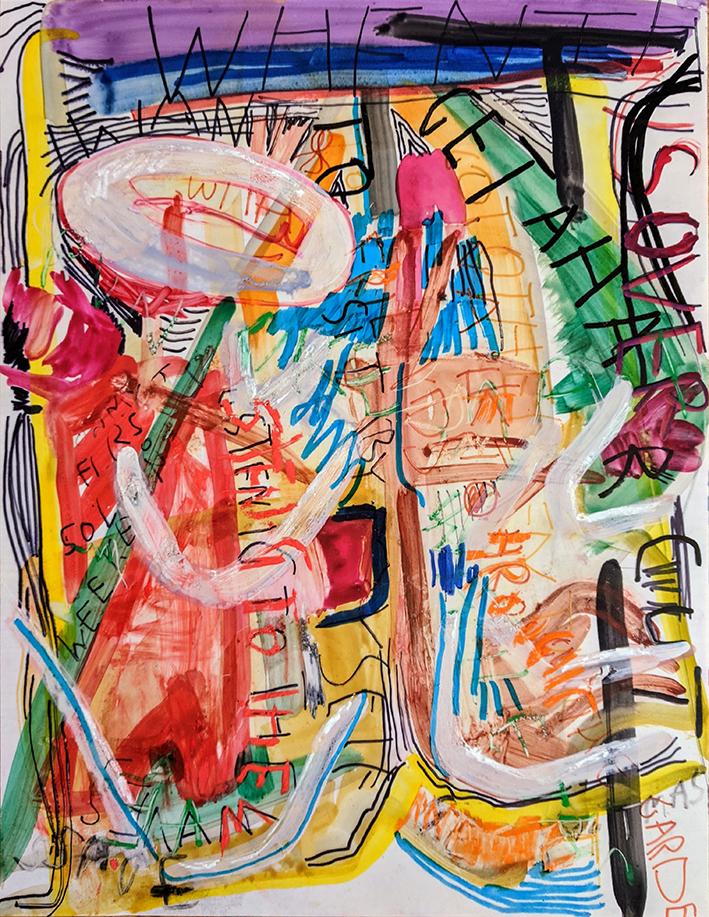Is Art Essential?
Is Art Essential?

I think this is an excellent moment to start over in the art scene: Educate collectors, gallerists, art lovers, even artists. Any reform in the art world and one is now sorely needed, should start in the ways we talk and write about Art. Starting from what seems like the gotcha question: Is Art essential to society?
From the mega gallerist in between PPP applications, to the respectful museum patron slash collector with shady money, to the lowly artist in the studio endlessly refreshing the website to see if they got the art grant, and the art critic getting his coffee in the gas station; I think we will all node our head thoughtfully to the camera and say: Yes, of course, Art is essential. Art is beauty; Art is Life, Art is a relief from the banality of everyday life, a refuge, an oasis, choose your cheesy take. It is true: Art makes life bearable.
I also believe that Art is essential in the same way protests are. Art is a disruption, Art provides the bumps on the road that make people stop and think: "wait what?". Art challenges the status quo, imagines the unimaginable, creates new narratives that open up our consciousness, and the path to change. (That is why representation is so crucial; you can't be what you can't envision). In that sense, Art is a progressive process by definition.
The art world, on the other hand... If you ask me if the art market is essential to society, besides tax evasion and money laundering, that is, I would be pretty hesitant to say yes; despite it being the only thing that has been paying my bills for over a decade now. Let's walk through these eggshells.

I left my friend on read here because I didn't want to get into it at the time, I mean what can I say Dada? Abstract Art, Cubism? It seemed a little bit far back in the past since the last time the art world lead the way to change in society. And what about my Art, have I been agitating for change or cashing in the checks? A little bit of both, I guess. The truth is the market system, pre Covid19, often works against the very principles that make Art possible. We all know it, we all live with it. It is a system of commodifying the art object as a status symbol, a luxury object available exclusively to a select group of buyers. In that way, it feeds on repetition, sameness, and recognizability. The art market is an inherently conservative process. A system made to define, safeguard, and preserve the status quo. If successful, the art product will be streamlined and intensely marketed for 3-5 years at a time in fairs and galleries worldwide. Then it will be hung in slight variations in similarly opulent villas where curators and museum directors will gather around to nod their heads at its greatness and the collectors' unique spirit of sameness while sipping champaign and ask for the next donation. At the same time, every one of these mass-produced, same-ish objects is celebrated as a masterpiece. That is a conflict art criticism is often summoned to bridge. The myth of the masterpiece, despite really all evidence to the contrary, is fueled by the myth of interpretation. The art writing "expert" is called upon to validate the creative content's exclusivity, not by explaining it, no, but on the contrary, by offering no access to it. Denying access seems to be this system's modus operandi. Art is sold exclusively, shown exclusively, bought exclusively, interpreted exclusively, celebrated in exclusive circles. So, going back to our original question.
If Art is essential to society, WHY THE FUCK hasn't been more accessible.
Can it become so now? This system has now been turned on its head. The art world now relies on the internet to survive - a system built for and defined by public access. Now what? So far, the art market has handled the current crisis on hold, waiting ( while sucking federal funds and furloughing employees) for things to get back to normal. But with the Fall's big fairs turning online only too, is it maybe a time to come to terms with what this new system could mean for the art world? I see a lot of potential for positive changes there.
Can we figure out another way to calculate and reimburse art labor? Would it be helpful to shift the focus from the object to labor? Can we skip the middleman and sell cool objects to people who want to buy them online? Do all works of art need to be hung in an empty space for a month, or can some just be bought online to match your couch or current mood? What if museums were publicly funded and didn't need patrons. What if there were no art fairs and gallerists could invest that capital in unique off space showing opportunities? What if gallerists spend less money schmoosing collectors and more money helping out with materials and studio costs? What if there were no gallerists and the Art could be priced at about one-third of its current rate? What can an open-source, online-only art market system look like? Because having online waiting rooms and pasting the same chair in front of the painting will not cut it.
Art is essential. The art market, in its current form, is detrimental to all of its components. Let's get rid of it.